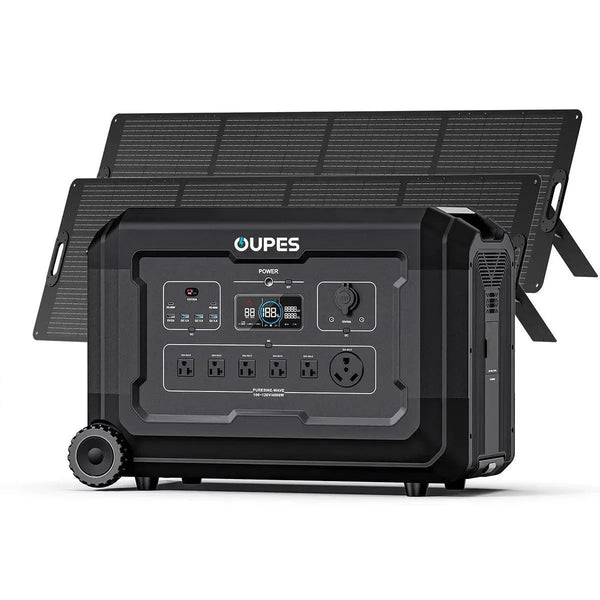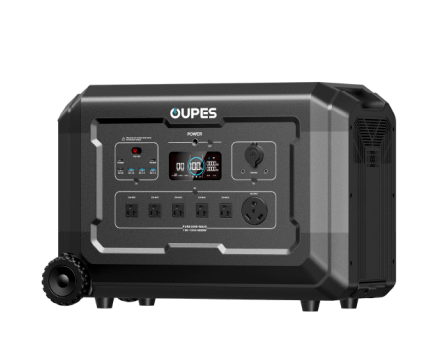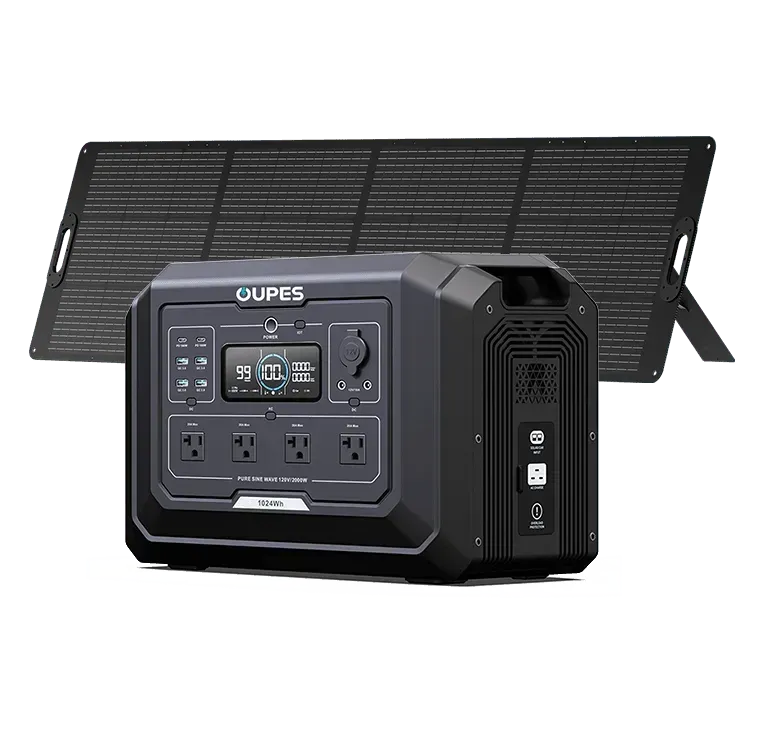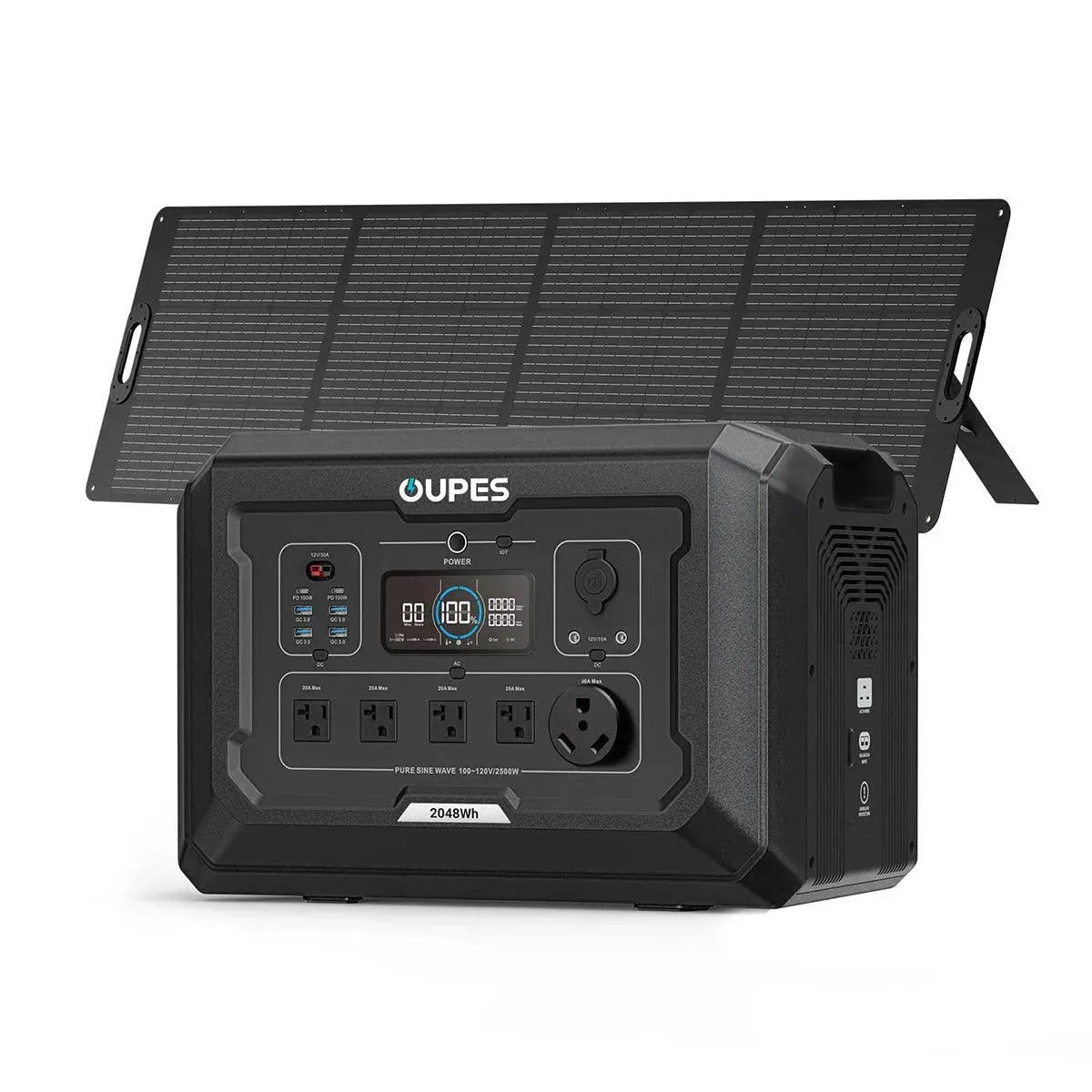
When the lights go out and appliances fall silent, most homeowners realize how dependent modern life is on electricity. A reliable home backup power source can make the difference between comfort and chaos during an outage. While many people turn to generators, the question often arises: is an inverter generator necessary for home backup, or are there better alternatives?
The truth is that not all generators are created equal. Inverter generators, conventional generators, and portable power stations each serve different purposes and have their own advantages. Understanding these differences is essential to making the best choice for your home. Let’s explore whether you truly need an inverter generator or if other solutions, like OUPES portable power stations, might be the smarter investment.
Understanding What an Inverter Generator Does
To know whether you need an inverter generator, you first have to understand how it works and why it’s different from a conventional generator. Traditional generators produce alternating current (AC) electricity directly from the mechanical energy of the engine. While this power is effective for running large appliances and tools, it is not always clean or stable. The fluctuations in current—known as “total harmonic distortion”—can damage sensitive electronics like laptops, medical devices, or smartphones.
An inverter generator takes a different approach. Instead of outputting raw AC power, it first generates direct current (DC) and then uses an electronic inverter to convert it back into stable AC electricity. This results in a smoother, more consistent flow of power that is safe for modern electronics. Essentially, inverter generators deliver cleaner energy, closer to the electricity you get from the grid.
Another defining characteristic of inverter generators is efficiency. Because they can adjust engine speed to match the power demand, they consume less fuel compared to conventional models, especially during light loads. This not only saves money but also reduces noise and emissions. For households that value efficiency and quiet operation, inverter generators are a significant improvement over older designs.
However, while inverter generators are more advanced, they also come with higher price tags and limited maximum power output compared to larger conventional generators. This makes them ideal for households with moderate power needs or for powering sensitive electronics during outages, but they may not be the best fit for homes looking to run everything simultaneously, such as HVAC systems and large appliances.
The Benefits and Limitations of Inverter Generators for Home Backup
One of the most compelling benefits of inverter generators is their ability to protect sensitive electronics. In today’s households, this is crucial. From laptops and smartphones to medical equipment, modern devices require clean, consistent power. An inverter generator ensures you won’t risk damaging these items during an outage, which is a significant reassurance for families.
Fuel efficiency is another major advantage. Because inverter generators can throttle their engines according to demand, they don’t waste energy by running at full power unnecessarily. This translates to longer run times on less fuel, which is particularly valuable during extended outages when fuel availability might be limited. Additionally, their quieter operation makes them less disruptive, especially in residential areas where noise is a concern.
Portability also makes inverter generators appealing. Many models are compact and easy to transport, making them versatile for both home backup and outdoor activities like camping. They are designed to provide reliable power in a wide range of settings, giving homeowners flexibility beyond emergency use.
Despite these benefits, inverter generators are not without drawbacks. Their higher initial cost compared to conventional models can be a barrier for some families. They also tend to have lower maximum output, which means they may not be suitable for running high-demand appliances all at once. For example, while an inverter generator may keep your fridge, lights, and electronics running smoothly, it may struggle with larger systems like central air conditioning or electric heating.
Another limitation is the reliance on fuel. Even though they are more fuel-efficient than traditional generators, they still depend on gasoline or propane. During widespread outages, fuel can be difficult to obtain, leaving homeowners vulnerable if they haven’t stocked up. This is one area where newer technologies, such as solar-powered solutions, present a compelling alternative.
Comparing Inverter Generators to Conventional Generators and Portable Power Stations
When deciding whether an inverter generator is the right choice for home backup, it’s important to compare it with other available options. Conventional generators, while often cheaper and capable of delivering higher wattage, produce unstable electricity and are extremely loud. They are well-suited for powering heavy-duty equipment but can be overkill or even risky for household use, especially with delicate devices.
Inverter generators strike a balance, offering cleaner energy, quieter operation, and better efficiency, but at the cost of lower overall power capacity and higher prices. They are a strong choice for families who need safe, reliable electricity for critical devices and moderate household use during outages.
Portable power stations, like those offered by OUPES, represent a modern alternative that eliminates many of the drawbacks associated with fuel-powered generators. These devices use advanced lithium batteries to store energy and can be recharged through solar panels, wall outlets, or even car ports. Because they don’t rely on fuel, they are immune to supply shortages during emergencies. They are also completely silent and safe to use indoors, unlike gas generators that produce harmful emissions.
For example, a high-capacity OUPES power station can power refrigerators, lights, communication devices, and even medical equipment without the noise, fumes, or fuel concerns of a traditional generator. With solar input, they become renewable systems that can sustain households for extended outages. This makes them a practical, eco-friendly alternative to both conventional and inverter generators.
The choice ultimately depends on your household’s power needs, budget, and preferences. If you value portability, clean energy, and independence from fuel, a portable power station may be the best investment. If you prioritize higher wattage output and are comfortable storing fuel, an inverter generator could still serve as a solid backup solution.
How to Decide the Best Option for Your Household
Deciding whether you need an inverter generator comes down to evaluating your household’s unique requirements. Start by identifying the essential appliances you want to power during an outage. Refrigerators, lights, communication devices, and medical equipment are often at the top of the list. Then, calculate their combined wattage to determine whether an inverter generator would be sufficient or if you’d need a larger power solution.
Consider your environment as well. If you live in an area prone to frequent or extended outages, fuel availability could become a concern. In such cases, a portable power station with solar charging might be more sustainable. On the other hand, if outages in your area are typically short and infrequent, an inverter generator may offer an adequate balance of cost and performance.
Budget also plays a role. While inverter generators are more expensive than conventional models, they provide superior energy quality, efficiency, and safety. However, if you’re willing to invest in long-term sustainability and independence from fuel, exploring alternatives like OUPES portable power stations could prove more valuable over time.
Finally, think about convenience. Do you want to deal with storing and refueling gasoline during emergencies, or would you prefer a plug-and-play system that can recharge with renewable energy? Your comfort with maintenance, noise, and emissions should guide your decision as much as power capacity and cost.
Conclusion
Inverter generators are powerful tools for home backup, offering clean energy, efficiency, and portability. They are particularly valuable for households that rely on sensitive electronics and need a reliable backup for moderate power demands. However, they are not the only solution. Conventional generators provide higher wattage but come with noise and safety issues, while modern portable power stations like those from OUPES offer a fuel-free, renewable alternative that is safe indoors and sustainable over the long term.
Whether or not you need an inverter generator depends on your household’s needs, budget, and lifestyle. By weighing the pros and cons of each option, you can choose a solution that ensures your family remains safe, comfortable, and prepared the next time the lights go out.




























